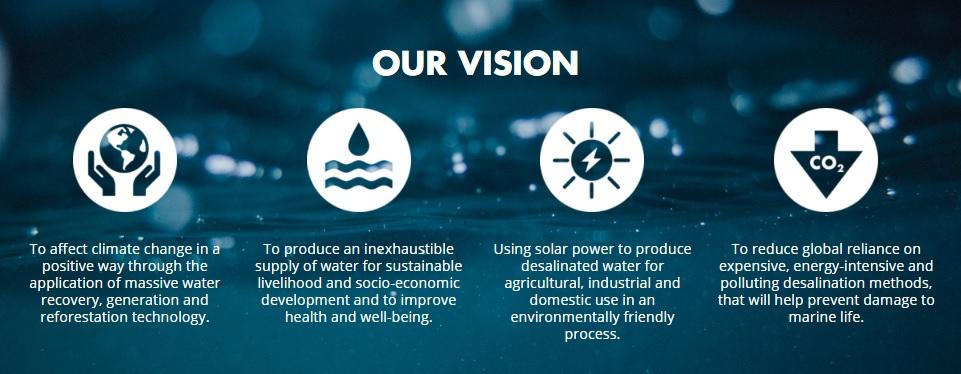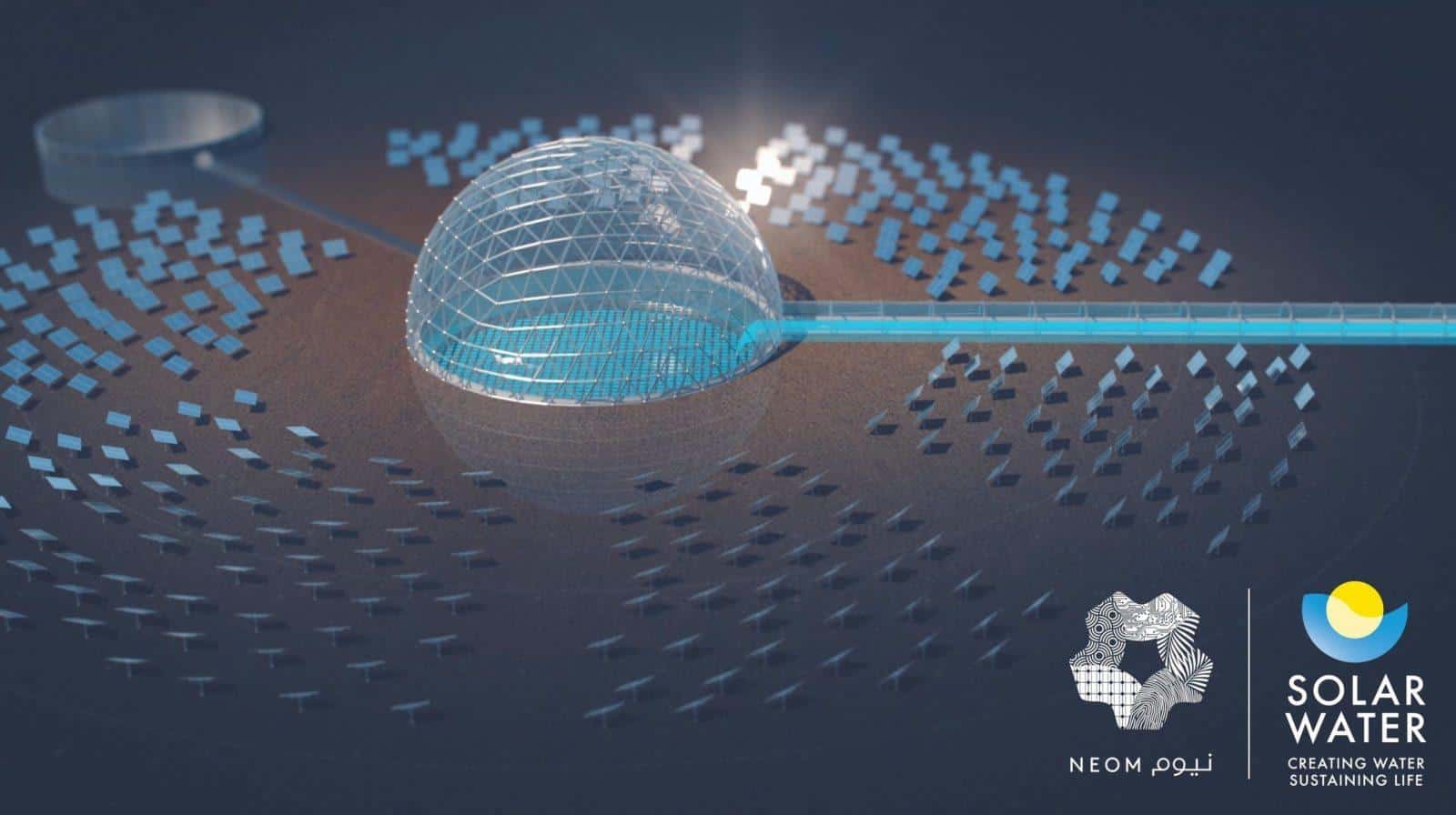NEOM announced on Wednesday 30/1/2020 that it will adopt groundbreaking solar technology to produce eco-friendly, low-cost water, reinforcing NEOM’s reputation as an emerging hub for innovation and innovation. Preserving the environment.
NEOM takes the lead in solar dome technology for the sustainable desalination project NEOM takes the lead in solar dome technology for the sustainable desalination project.
The company has signed an agreement with “Solar Water Plc.” , Based in the United Kingdom, to build the first solar dome desalination plant in NEOM, northwest of Saudi Arabia. The pilot project is a revolution in desalination, which helps solve one of the world’s most pressing problems – access to drinking water.
Work on the first “solar dome” will start in February and is expected to end by the end of 2020.
At an estimated cost of $ 0.34 per cubic meter, the cost of water production through the “solar dome” technology will be much lower than the cost of desalination plants using reverse osmosis methods. The technology will also reduce the impact on the environment by producing more salt concentration, a potentially harmful byproduct of the water extraction process.
His Excellency Abdul Rahman Al-Fadhli, Minister of Environment, Water and Agriculture in the Kingdom of Saudi Arabia, commented on the project:
The adoption of the NEOM principle for this pilot project supports the sustainability goals in the Kingdom of Saudi Arabia, as was emphasized in National Water, the country’s 2030 strategy, which is fully aligned with the objectives of Sustainable development established by the United Nations.
Nazmi Al-Nasr, CEO of NEOM, added: “Easy access to abundant seawater and fully renewable energy sources indicates that NEOM is in an ideal position to produce low-cost, sustainable drinking water through solar water desalination. This type of energy is a strong reminder of our commitment to support innovation, And the gain in preserving the environment and providing exceptional housing. Working together with the Ministry of Environment, Water and Agriculture, we can extend the implementation of this technology to a distance soon. ”

The new solar approach, developed at Cranfield University in the UK, is the first widespread use of CSP technology in seawater desalination. The process testifies to how seawater was pumped into a hydrological “solar dome” created with glass and steel, before it warmed up, evaporated and finally deposited as drinking water.
The desalination processes in the “solar dome”, which also work at night thanks to the solar energy stored during the day, will reduce the total amount of saline solution that is created during the water extraction processes. Usually, the high salt concentration in brine makes the process more complicated and expensive. Solar dome operations help prevent any damage to marine life, as there is no saline solution discharged into the sea.
With more than a billion people around the world lacking safe drinking water every day, the NEOM solar water desalination project will serve as a test for other water-deficient countries that are struggling to generate safe and sustainable sources for an environmental level in relation to water Drinking.
“We are extremely excited about the potential for revolutionary water technology and innovative thinking in the NEOM industry. By using desalination technologies in the solar dome, we can build an efficient and effective public water service that is oriented towards the future and towards environmental responsibility,” said Gavin Van Tonder, NEOM’s water officer. “.
David Ripley, CEO of Solar Water, commented: “Today, thousands of desalination plants around the world rely heavily on burning fossil fuels to carry out water extraction, and our oceans are poisoned in the process. With excess brine. We have desalination technology. “That involves a change in the game that is 100% carbon neutral and completely sustainable. At NEOM we discovered a partner who has an outstanding vision of what a new future should be in harmony with nature.”

